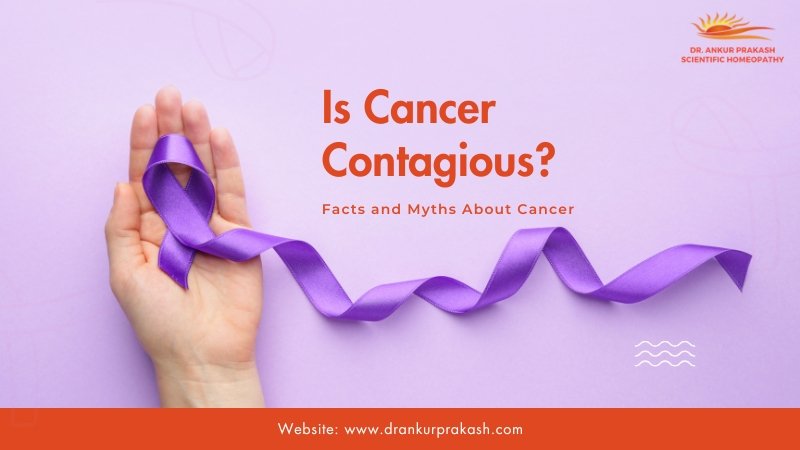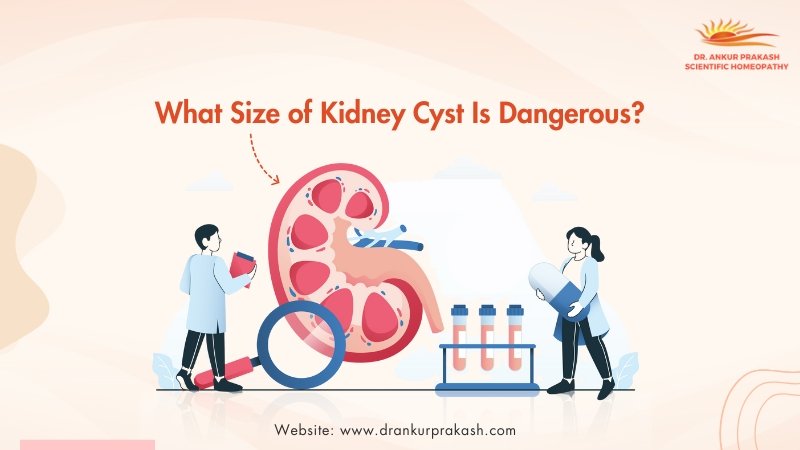Vitamin B12 is essential for healthy nerve function, red blood cell formation, and DNA synthesis. While low levels are commonly linked to anemia and fatigue, unusually high B12 levels in blood tests can sometimes raise concerns. One of the questions that arises is whether high B12 could be a warning sign of cancer.
In most cases, elevated B12 levels are due to supplementation or underlying liver or kidney conditions. However, in rare cases, very high B12 levels without supplementation may be associated with certain types of cancer, especially blood-related cancers like leukemia or liver diseases. This does not mean high B12 causes cancer—it may simply be a marker of something else happening in the body.
What Does High B12 Mean?
Vitamin B12 (also called cobalamin) is absorbed from food and stored mainly in the liver. The body regulates its levels efficiently, and excess B12 is usually excreted in urine. So when blood tests show abnormally high levels of B12—especially without supplementation—it could be a sign of something unusual happening inside the body.
Normal B12 Range:
- Typical range: 200 to 900 pg/mL
- High: > 900 pg/mL (may vary slightly by lab)
Possible indications of high B12 include:
- Abnormal liver function
- Overproduction of B12-binding proteins
- Impaired kidney function
- Myeloproliferative disorders (abnormal bone marrow activity)
Important note: Having a high B12 level does not automatically mean disease, but it requires attention, especially if the levels are consistently elevated and you’re not taking supplements.

How High B12 Levels Could Be Linked to Cancer?
Recent medical studies have shown that elevated Vitamin B12 levels can sometimes be associated with the presence of certain types of cancers, particularly those involving the blood, liver, or digestive system. It is essential to understand that high B12 does not cause cancer, but in some cases, it may act as a biological marker, reflecting underlying disease activity.
Cancers most commonly linked to high B12 levels include:
- Hematologic cancers – such as leukemia, lymphoma, and multiple myeloma, where the bone marrow and white blood cells are involved
- Liver cancer – including primary liver cancer or secondary metastatic tumors that affect liver function
- Gastrointestinal cancers – such as stomach, colon, esophageal, and pancreatic cancers
These types of cancer can result in high B12 readings for several biological and physiological reasons.
Why Cancer May Cause Elevated B12?
In many of these cases, it is not the vitamin B12 itself that is the problem, but rather the body’s response to malignant processes, which may alter how B12 is handled in the body. Here’s how:
1. Overproduction of B12-Binding Proteins
Some tumors and cancer cells stimulate the overproduction of proteins such as:
- Haptocorrin (also called transcobalamin I)
- Transcobalamin II
These proteins bind to vitamin B12 in the bloodstream. When produced in excess by certain cancer cells, they increase the total B12 levels in blood, giving the illusion of surplus, even though the vitamin may not be properly utilized by the body.
2. Increased Cellular Turnover
Cancers involving the blood and bone marrow (like chronic myelogenous leukemia) cause rapid cell division and destruction. This high turnover leads to:
- Release of large amounts of intracellular contents, including B12-binding proteins
- Increased demand for B12 by rapidly growing cells, which causes the body to compensate by circulating more B12
The result is an elevated serum B12, often seen in lab tests for leukemia and lymphoma patients before treatment.
3. Liver Dysfunction and B12 Release
The liver stores 60–90% of the body’s total vitamin B12 reserves. When liver cells are damaged by:
- Liver cancer,
- Cirrhosis,
- Metastatic tumors, or
- Chronic hepatitis,
These stored vitamins can leak into the bloodstream, artificially inflating serum B12 levels. The liver may also lose its ability to properly filter and clear excess B12 from circulation.
Example: A person with liver metastasis from colon cancer may show elevated B12 not because of dietary intake, but because damaged liver cells are leaking B12 into the bloodstream.
4. Paraneoplastic Syndromes
Some cancers trigger paraneoplastic syndromes, where tumors produce hormone-like substances or alter metabolic activity. In rare cases, such mechanisms may upregulate vitamin B12 transport or affect B12 metabolism, leading to a rise in measurable levels.
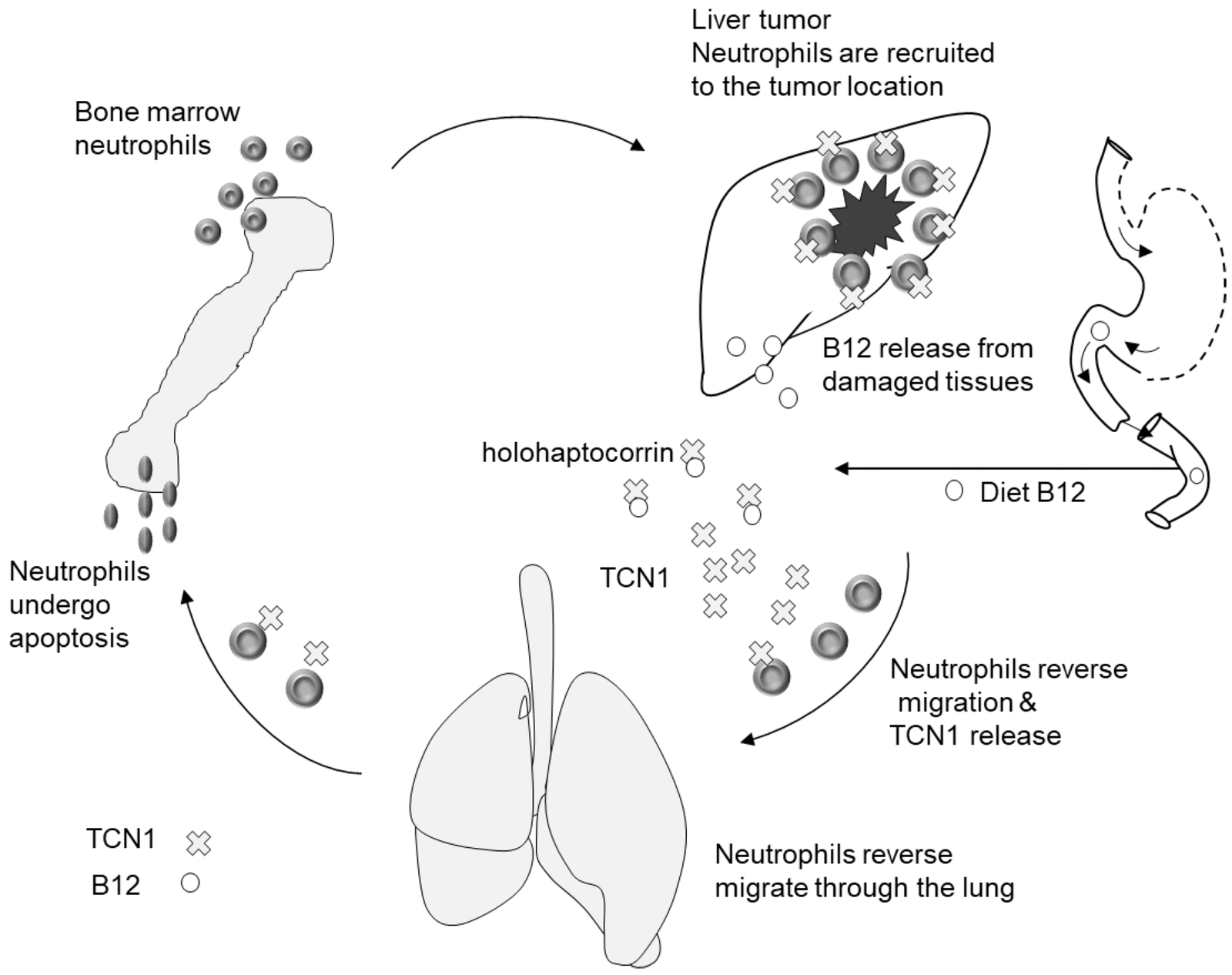
Is High B12 a Diagnostic Marker for Cancer?
No, elevated Vitamin B12 (cobalamin) is not a definitive diagnostic marker for cancer. It cannot confirm or rule out cancer by itself. However, when high B12 levels appear without a clear reason—such as supplementation, injection, or diet—and are accompanied by other warning signs, it can act as a clinical clue that something more serious may be developing.
Vitamin B12 is a water-soluble vitamin that is usually tested to check for deficiency, not excess. Therefore, when elevated levels show up in a routine blood test—especially persistently over multiple tests—it raises the need to explore underlying medical conditions, including some cancers.
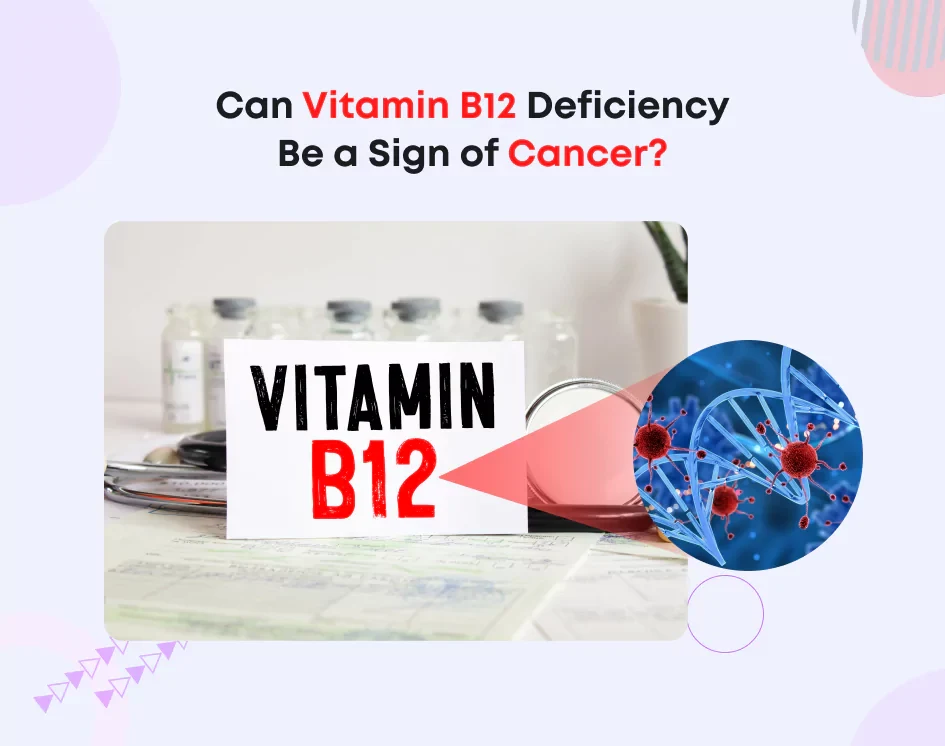
Other Causes of High B12 Levels
While cancer can sometimes be associated with elevated B12 levels, it is not the most common cause. In fact, many non-cancerous and often treatable conditions can also lead to an increase in serum vitamin B12. Understanding these alternative causes is essential for making an accurate diagnosis and avoiding unnecessary worry.
Let’s explore the most common non-cancerous reasons behind elevated B12:
1. Liver Disorders
The liver stores most of the body’s B12. In conditions like fatty liver, hepatitis, or cirrhosis, damaged liver cells can leak B12 into the bloodstream, causing elevated levels.
2. Kidney Dysfunction
Diseases like chronic kidney disease reduce the body’s ability to clear excess B12, leading to accumulation in the blood.
3. Chronic Inflammatory Conditions
Autoimmune disorders like rheumatoid arthritis, lupus, or inflammatory bowel disease can alter B12 metabolism and increase blood levels due to protein imbalances.
4. Blood Disorders
Conditions like polycythemia vera, essential thrombocythemia, or myelodysplastic syndromes can cause overproduction of B12-binding proteins, leading to high serum B12.
5. Excessive Supplementation
Taking high-dose B12 supplements, injections, or multivitamins often leads to temporary high levels—usually harmless if not paired with symptoms.
6. Bacterial Overgrowth
In gut dysbiosis or SIBO, certain bacteria produce B12-like compounds that may falsely raise lab values without offering any real benefit to the body.
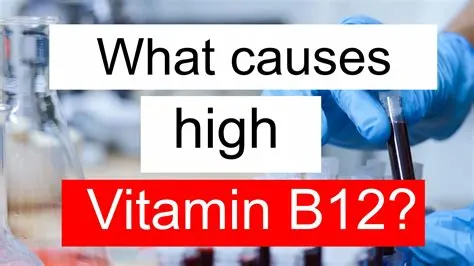
How to Approach High B12 Levels?
Finding high vitamin B12 levels in a blood report can feel alarming, but it’s important to understand that B12 is not a toxin, and its elevation does not automatically mean something serious like cancer. However, it’s also not something to ignore—especially if the cause isn’t obvious.
Here’s how to handle elevated B12 levels wisely and systematically:
Step 1: Review Your Supplement Intake
Start by examining your current lifestyle and habits:
- Are you taking B12 tablets, multivitamins, energy drinks, or B-complex supplements?
- Have you recently received a B12 injection from a doctor?
These sources can easily elevate B12 levels—even up to 2000 pg/mL or more—without causing harm. If yes, stop them for a few weeks and retake the test after 10–14 days. Levels often return to normal naturally.

Step 2: Repeat the Test
A single abnormal test can sometimes be the result of:
- Lab errors
- Recent food intake or injections
- Dehydration or improper fasting
Request your doctor to repeat the B12 test from a reliable lab. You may also consider checking:
- Active B12 levels (holotranscobalamin)
- Methylmalonic acid (MMA) or homocysteine, if a functional B12 status is needed

Step 3: Evaluate Symptoms Thoroughly
High B12 is only concerning when paired with clinical signs. Watch out for:
- Chronic fatigue
- Unexplained weight loss
- Appetite loss
- Abdominal pain or swelling
- Bruising, pale skin, or frequent infections
- Neurological symptoms like tingling or confusion
These signs may hint at underlying conditions such as liver issues, inflammation, blood disorders, or rarely, cancer. Share all relevant symptoms with your doctor for accurate diagnosis.
Step 4: Request a Full Health Work-Up
If no clear cause (like supplements) explains your high B12, your doctor may recommend a detailed investigation, including:
- CBC (Complete Blood Count): To check for blood cell abnormalities or signs of infection or bone marrow disorders
- Liver and Kidney Function Tests: To evaluate the organs that store, process, and clear B12
- Tumor or Cancer Markers:
- CEA (Carcinoembryonic Antigen) – for colon and GI cancers
- AFP (Alpha-fetoprotein) – for liver cancers
- LDH (Lactate Dehydrogenase) – elevated in blood cancers and cell turnover
- CEA (Carcinoembryonic Antigen) – for colon and GI cancers
- Imaging Studies:
- Ultrasound – to screen liver, spleen, and kidneys
- CT/MRI – if symptoms or markers suggest deeper pathology
Step 5: Stay Calm and Informed
Elevated B12 is a biological signal, not a standalone diagnosis. It may reflect:
- A temporary shift due to supplements or diet
- An underlying condition that needs attention
- Or just a normal variation with no harmful outcome
How Homeopathy Helps for High B12?
Homeopathy works on the principle of treating the root cause of any imbalance—be it functional, emotional, or systemic.
If high B12 is due to liver inflammation, blood dysfunction, or stress-induced metabolic disruption, homeopathy helps restore harmony without side effects.
How Homeopathy Can Help:
- Detoxification support: Remedies like Chelidonium majus or Carduus marianus can assist liver healing
- Immunity modulation: Chronic inflammation or autoimmune responses can be gently managed
- Emotional balance: Stress and anxiety affect absorption and organ function; remedies like Nux vomica or Ignatia can help
- Personalized care: Homeopathy is not “one size fits all.” A detailed history helps choose the right remedy.
In my experience, homeopathy works best as a complementary therapy alongside diagnostics and medical care,” says Dr. Ankur Prakash. “It helps the body regain its natural balance and corrects the energy imbalances that often lie at the core of chronic problems.
Conclusion
High Vitamin B12 levels can be a confusing finding. While it may raise concerns about cancer, it’s not a definitive diagnosis. It simply means: look deeper. Elevated B12 can stem from various causes—many of which are treatable and not life-threatening.
A proper diagnosis, guided by a healthcare professional, is essential. And if you’re looking for a natural and gentle way to restore balance, homeopathy offers supportive care that looks beyond numbers and into the whole person.
For accurate guidance, early detection, and holistic healing, consult with experienced professionals like Dr. Ankur Prakash, who combines modern diagnostics with compassionate, patient-centered care.


